Browse our Growing Library of Success Stories
By:
Leopold Conservation Award Program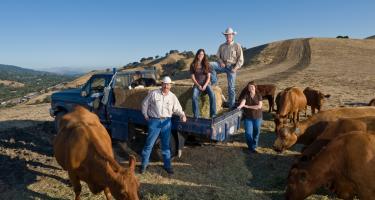 Tim Koopmann is a third generation rancher who owns and operates an 850 acre cow-calf operation in Sunol. The Koopmanns’ ranch is an agricultural gem surrounded by development.
Tim Koopmann is a third generation rancher who owns and operates an 850 acre cow-calf operation in Sunol. The Koopmanns’ ranch is an agricultural gem surrounded by development.
https://www.landcan.org/success/Koopmann-Ranch/3338/
By:
Leopold Conservation Award Program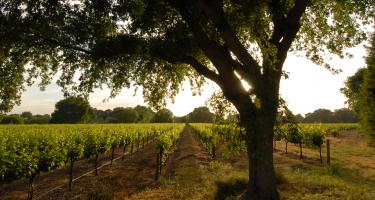 Brad and Randy Lange are third-generation winegrape growers on their 6,500-acre Lange Twins Wine Estates vineyard near Lodi. The Langes have improved natural habitat on their property through restoration of a riparian area along the Mokelumne River and the implementation of unique, eco-friendly pest-control methods.
Brad and Randy Lange are third-generation winegrape growers on their 6,500-acre Lange Twins Wine Estates vineyard near Lodi. The Langes have improved natural habitat on their property through restoration of a riparian area along the Mokelumne River and the implementation of unique, eco-friendly pest-control methods.
https://www.landcan.org/success/Lange-Twins-Wine-Estates/3339/
By:
Leopold Conservation Award Program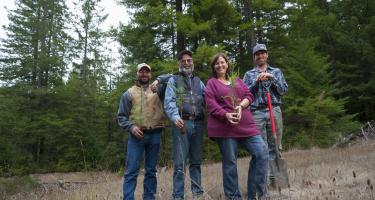 Located near Eureka in Humboldt County, the 5,000-acre, fifth-generation Lone Star Ranch is a shining example of diversity and environmental stewardship. The ranch is owned by Mark and Dina Moore, who are both strong believers in voluntary conservation practices, often striving to exceed the minimum regulatory obligations to improve and sustain natural resources, wildlife and ecosystems. Their mission is to “leave a legacy of stewardship and long term financial security to the ranch and children”.
Located near Eureka in Humboldt County, the 5,000-acre, fifth-generation Lone Star Ranch is a shining example of diversity and environmental stewardship. The ranch is owned by Mark and Dina Moore, who are both strong believers in voluntary conservation practices, often striving to exceed the minimum regulatory obligations to improve and sustain natural resources, wildlife and ecosystems. Their mission is to “leave a legacy of stewardship and long term financial security to the ranch and children”.
https://www.landcan.org/success/Lone-Star-Ranch/3340/
By:
Leopold Conservation Award Program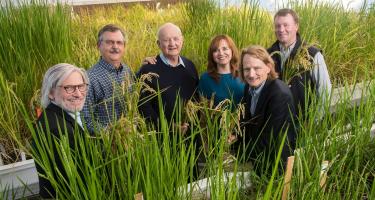 The Lundberg family’s commitment to agricultural conservation can be traced back to the ravages of the Dust Bowl.
The Lundberg family’s commitment to agricultural conservation can be traced back to the ravages of the Dust Bowl.
https://www.landcan.org/success/Lundberg-Family-Farms/3341/
By:
Leopold Conservation Award Program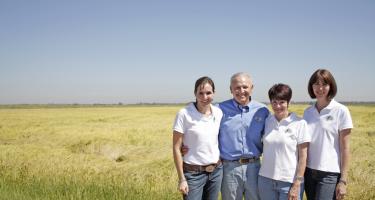 Al Montna, whose family has been farming in California since the late 1800s, has grown various crops through the years, such as peaches, prunes, wheat, and walnuts. Today, his Montna Farms consists of more than 2,500 acres of specialty short grain rice.
Al Montna, whose family has been farming in California since the late 1800s, has grown various crops through the years, such as peaches, prunes, wheat, and walnuts. Today, his Montna Farms consists of more than 2,500 acres of specialty short grain rice.
https://www.landcan.org/success/Montna-Farms/3342/
By:
Leopold Conservation Award Program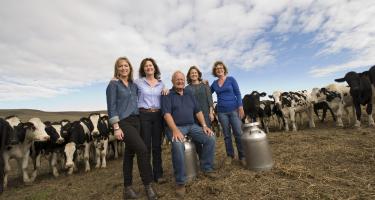 Bob and Dean Giacomini purchased a dairy from Bob’s father and ran their fluid milk business while raising four daughters on the farm in coastal Marin County.
Bob and Dean Giacomini purchased a dairy from Bob’s father and ran their fluid milk business while raising four daughters on the farm in coastal Marin County.
https://www.landcan.org/success/Point-Reyes-Farmstead-Cheese-Company/3343/
By:
Leopold Conservation Award Program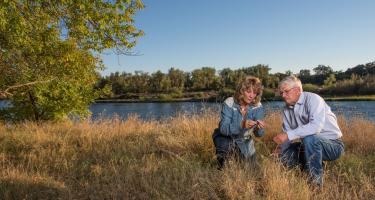 Jim and Mary Rickert have worked in production agriculture all of their lives, developing a deep love for the land and wildlife on the many acres they manage. Hired in 1979 by the original owner of Prather Ranch, the Rickerts have responsibly managed the land and recently became majority owners. Under their care, Prather Ranch has grown from 3,000 acres of pasture, hay and timberland, to over 35,000 acres.
Jim and Mary Rickert have worked in production agriculture all of their lives, developing a deep love for the land and wildlife on the many acres they manage. Hired in 1979 by the original owner of Prather Ranch, the Rickerts have responsibly managed the land and recently became majority owners. Under their care, Prather Ranch has grown from 3,000 acres of pasture, hay and timberland, to over 35,000 acres.
https://www.landcan.org/success/Prather-Ranch/3344/
By:
Leopold Conservation Award Program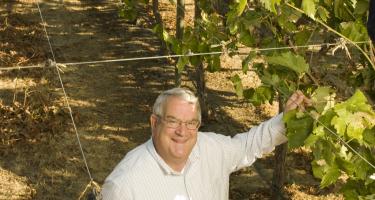 John Diener’s Red Rock Ranch consists of approximately 5,000 acres in Fresno County. He farms an array of high value row crops, using innovative approaches to land, water, and wildlife management.
John Diener’s Red Rock Ranch consists of approximately 5,000 acres in Fresno County. He farms an array of high value row crops, using innovative approaches to land, water, and wildlife management.
https://www.landcan.org/success/Red-Rock-Ranch/3345/
By:
Leopold Conservation Award Program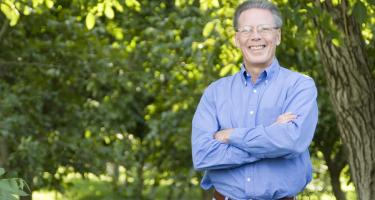 Craig McNamara’s 450-acre Sierra Orchards is a diversified farming operation that includes field, processing, and marketing operations and produces organic walnuts and grape rootstock. Sierra Orchards is proof that an agricultural operation is able to be green without going into the red.
Craig McNamara’s 450-acre Sierra Orchards is a diversified farming operation that includes field, processing, and marketing operations and produces organic walnuts and grape rootstock. Sierra Orchards is proof that an agricultural operation is able to be green without going into the red.
https://www.landcan.org/success/Sierra-Orchards/3346/
By:
Leopold Conservation Award Program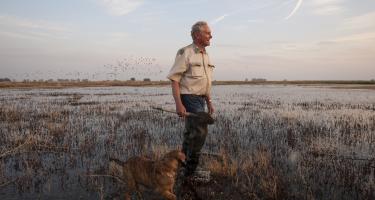 Jeff Thomson’s great-grandfather, C.B. Crawford, began farming near his 160-acre homestead in 1888. After the farm’s water source ran dry, he became a market duck hunter on Jerry Slough, 40 miles west of Bakersfield. With money saved from duck sales, C.B. bought several farming parcels that are still farmed by the Thomson family today.
Jeff Thomson’s great-grandfather, C.B. Crawford, began farming near his 160-acre homestead in 1888. After the farm’s water source ran dry, he became a market duck hunter on Jerry Slough, 40 miles west of Bakersfield. With money saved from duck sales, C.B. bought several farming parcels that are still farmed by the Thomson family today.
https://www.landcan.org/success/Thomson-International-Inc/3347/
By:
Leopold Conservation Award Program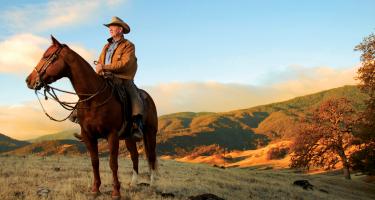 Chet Vogt’s Three Creeks Ranch in Glenn County is a 5,300 acre 500 cow/calf operation. The core of Chet’s holistic approach to ranching is intensive managed grazing, which rotates the cattle among 32 fenced paddocks.
Chet Vogt’s Three Creeks Ranch in Glenn County is a 5,300 acre 500 cow/calf operation. The core of Chet’s holistic approach to ranching is intensive managed grazing, which rotates the cattle among 32 fenced paddocks.
https://www.landcan.org/success/Three-Creeks-Ranch/3348/
By:
Leopold Conservation Award Program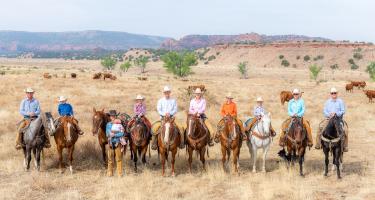 Beatty Canyon Ranch shines at doing right by the land, water, livestock and wildlife amid the grandeur of southeastern Colorado’s canyon landscape.
Beatty Canyon Ranch shines at doing right by the land, water, livestock and wildlife amid the grandeur of southeastern Colorado’s canyon landscape.
https://www.landcan.org/success/Beatty-Canyon-Ranch/3349/
By:
Leopold Conservation Award Program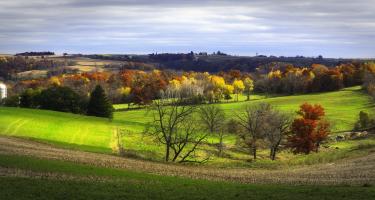 Dick Tanner grew up on the Bohart Ranch after his father, Jim Tanner began managing it for Field Bohart in 1942. After attending college and spending several years in agricultural finance in Denver, he and his wife, Sandra, decided to return to the ranch. Today, the Tanner family ranches 48,000 acres of State Land Board land year Yoder, Colorado in addition to acreage that has been in Sandra's family for more tnan 50 years. The family runs a 700-1,200 head cow-calf operation, depending on range conditions.
Dick Tanner grew up on the Bohart Ranch after his father, Jim Tanner began managing it for Field Bohart in 1942. After attending college and spending several years in agricultural finance in Denver, he and his wife, Sandra, decided to return to the ranch. Today, the Tanner family ranches 48,000 acres of State Land Board land year Yoder, Colorado in addition to acreage that has been in Sandra's family for more tnan 50 years. The family runs a 700-1,200 head cow-calf operation, depending on range conditions.
https://www.landcan.org/success/Bohart-Ranch/3350/
By:
Leopold Conservation Award Program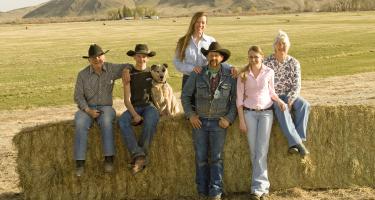 The fifth-generation Coleman Ranch consists of irrigated meadows and mixed short- and tallgrass prairie in Saguache, located approximately 200 miles southwest of Denver. The ranch, owned and operated by Jim and Frances Coleman, their son, Tim, and his wife, Teddi, has raised certifed natural organic beef under the Coleman Natural brand for almost 30 years.
The fifth-generation Coleman Ranch consists of irrigated meadows and mixed short- and tallgrass prairie in Saguache, located approximately 200 miles southwest of Denver. The ranch, owned and operated by Jim and Frances Coleman, their son, Tim, and his wife, Teddi, has raised certifed natural organic beef under the Coleman Natural brand for almost 30 years.
https://www.landcan.org/success/Coleman-Ranch/3352/
By:
Leopold Conservation Award Program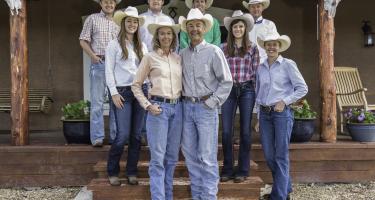 For over 100 years, the Johnson family’s philosophy has been to leave resources under their stewardship in better condition than when they found them, and to pass their ranch on to the next generation. Located near Kit Carson, Flying Diamond Ranch is now in its fifth generation and the family is determined to pass it on to the sixth.
For over 100 years, the Johnson family’s philosophy has been to leave resources under their stewardship in better condition than when they found them, and to pass their ranch on to the next generation. Located near Kit Carson, Flying Diamond Ranch is now in its fifth generation and the family is determined to pass it on to the sixth.
https://www.landcan.org/success/Flying-Diamond-Ranch/3353/
By:
Leopold Conservation Award Program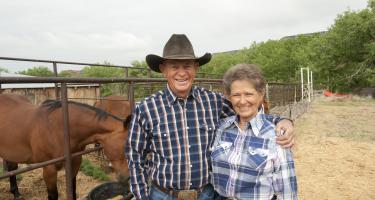 John and Carolyn Doherty’s 32,000-acre ranch in Las Animas County is the product of five generations of outstanding land management. John’s grandfather, “Papa Joe,” understood the importance of conservation, especially water management, to a ranching operation. His approach was passed down to John’s parents, Joe and “Tiny.”
John and Carolyn Doherty’s 32,000-acre ranch in Las Animas County is the product of five generations of outstanding land management. John’s grandfather, “Papa Joe,” understood the importance of conservation, especially water management, to a ranching operation. His approach was passed down to John’s parents, Joe and “Tiny.”
https://www.landcan.org/success/Mesa-de-Maya-Ranch/3355/
By:
Leopold Conservation Award Program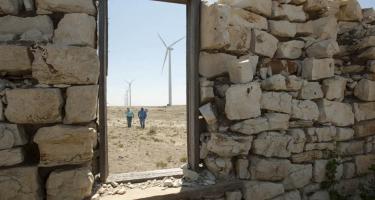 Siblings Jo Ann McEndree, Kaye Kasza, Steve McEndree and Cathy Tebay are fourth generation ranchers who are highly committed to the economic and environmental health of their Pipe Springs Ranch, located near Springfield, so it can be passed on to future generations.
Siblings Jo Ann McEndree, Kaye Kasza, Steve McEndree and Cathy Tebay are fourth generation ranchers who are highly committed to the economic and environmental health of their Pipe Springs Ranch, located near Springfield, so it can be passed on to future generations.
https://www.landcan.org/success/Pipe-Springs-Ranch/3356/
By:
Leopold Conservation Award Program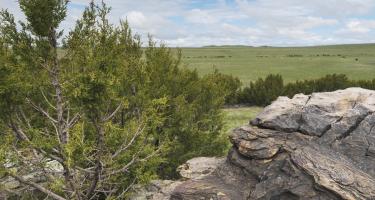 Located southwest of Fowler, Rancho Largo Cattle Company is a 14,000-acre cow/calf and stocker cattle ranch managed by Grady, and co-owned with his former college roommate Robert Lovelace. Depending on weather and grass availability, Grady adjusts his numbers of cows, calves and stocker cattle through buying and selling, making him less dependent on one section of the industry.
Located southwest of Fowler, Rancho Largo Cattle Company is a 14,000-acre cow/calf and stocker cattle ranch managed by Grady, and co-owned with his former college roommate Robert Lovelace. Depending on weather and grass availability, Grady adjusts his numbers of cows, calves and stocker cattle through buying and selling, making him less dependent on one section of the industry.
https://www.landcan.org/success/Rancho-Largo-Cattle-Company/3357/
By:
Leopold Conservation Award Program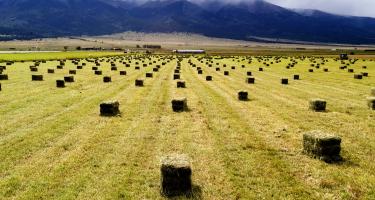 The San Isabel Ranch, located in Westcliffe, Colorado has a 135 year history of agriculture. The success of the ranch can largely be attributed to the late Dr. Ben Kettle and his wife, Bet. The operation is now run by the Kettles’ daughter, Sara Shields, and her husband, Mike, but Bet is still very much involved.
The San Isabel Ranch, located in Westcliffe, Colorado has a 135 year history of agriculture. The success of the ranch can largely be attributed to the late Dr. Ben Kettle and his wife, Bet. The operation is now run by the Kettles’ daughter, Sara Shields, and her husband, Mike, but Bet is still very much involved.
https://www.landcan.org/success/San-Isabel-Ranch/3359/
By:
Leopold Conservation Award Program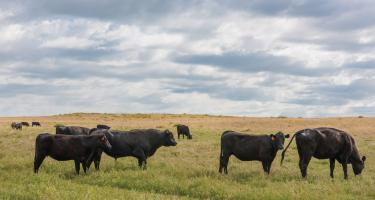 The Tureceks have ranched and farmed on the eastern plains of Colorado since 1910. Over the last 36 years, Keven and Sandi Turecek have combined land from both sides of the family to create what is now the Stacked Lazy 3 Ranch, a cow/calf and dryland wheat business comprised of 5,000 acres of farmland and 30,000 acres of pasture.
The Tureceks have ranched and farmed on the eastern plains of Colorado since 1910. Over the last 36 years, Keven and Sandi Turecek have combined land from both sides of the family to create what is now the Stacked Lazy 3 Ranch, a cow/calf and dryland wheat business comprised of 5,000 acres of farmland and 30,000 acres of pasture.
https://www.landcan.org/success/Stacked-Lazy-3-Ranch/3360/
 Sign In
Sign In
 Sign In
Sign In
